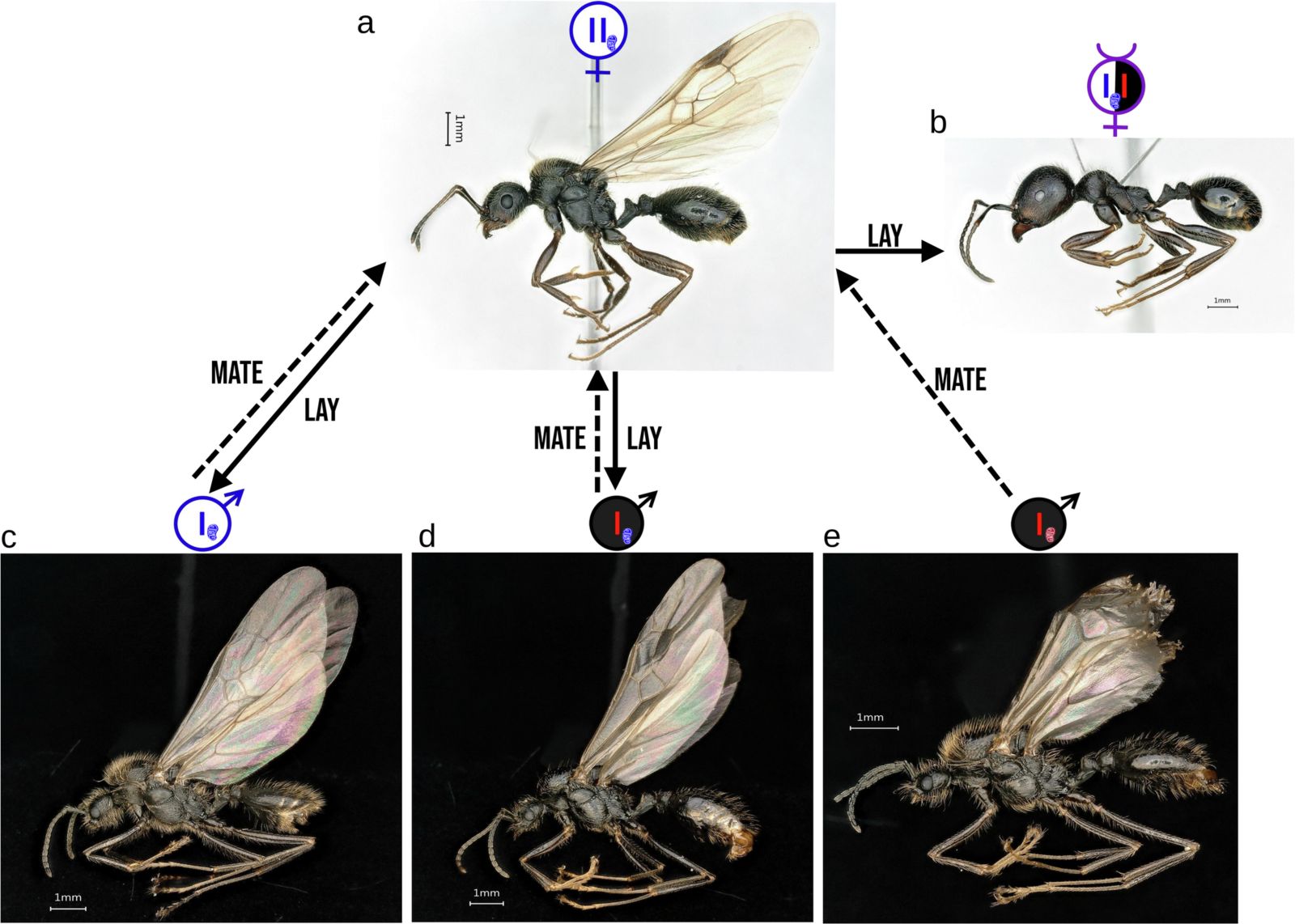Follow us on Google News (click on ☆)
Researchers have uncovered a unique strategy in Iberian harvester ants (Messor ibericus). Queens appear capable of giving birth not only to their own species, but also to individuals of a different species that is otherwise absent (without queens) in the region, Messor structor. Published in the journal Nature, this research sheds light on a form of reproduction never before observed in the animal kingdom.

(a) M. ibericus queen.
(b) M. ibericus workers (ibericus x structor hybrids).
(c) M. ibericus male.
(d) M. structor male (clonal).
(e) M. structor male (wild type).
An unprecedented reproductive strategy
Biologists studied more than 120 colonies across Europe and observed a puzzling phenomenon: a single queen can produce males belonging to two distinct species. The individuals are distinguished by their pilosity, a classic distinguishing criterion in these ants.
Some eggs retain the genetic heritage of Messor ibericus and can give rise to queens, while others erase the maternal DNA and develop only that of the male from another species. The latter are true genetic clones.
Thus, the colony consists almost entirely of hybrid workers, the result of the union between the Iberian queen and these cloned males. This system ensures the survival of the group, even when isolated from any Messor structor population.
An evolutionary mystery solved
The two studied species diverged about five million years ago. Despite this separation, they long coexisted in certain European regions. At some point in their history, Iberian queens lost the ability to produce their own workers.
This loss made them dependent on Messor structor males. Scientists suggest that a "selfish" gene may have biased larval development, steering reproduction toward future queens rather than workers. To compensate, the queens would have adopted the use of foreign partners.
Over time, they gained complete mastery of this process, directly cloning the necessary males within their own colonies. This "domestication" of sperm from another species constitutes an unprecedented case of reproduction called xenoparity.